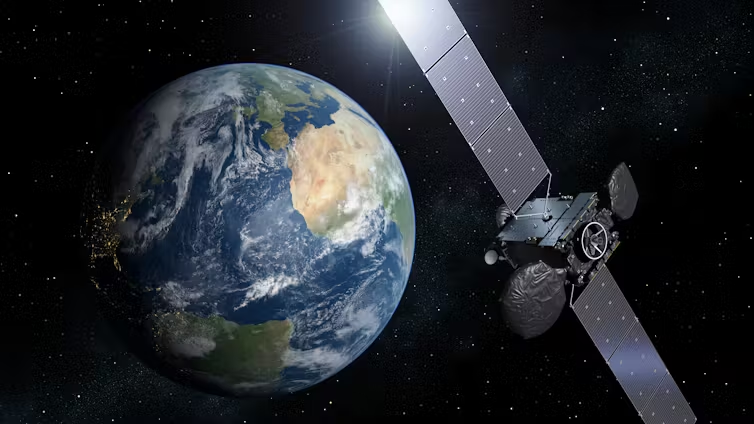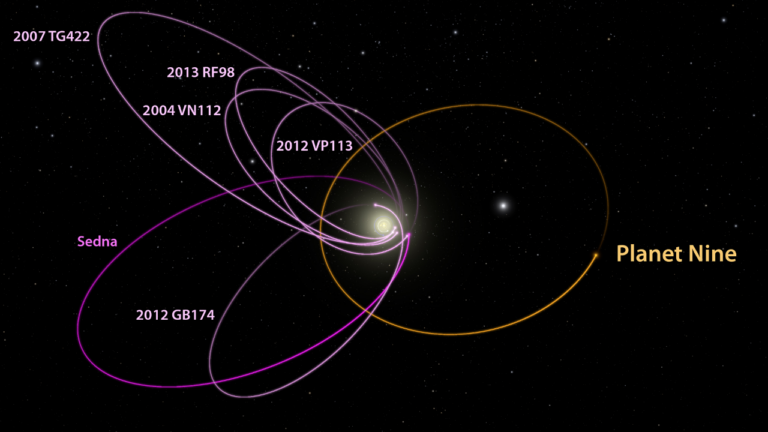Enrico Fermi was a noted Italian physicist who, among other accomplishments, created the world’s first nuclear reactor and won the Nobel Prize in Physics in 1938. In 1950, during a conversation about UFOs with several other scientists at Los Alamos National Laboratory, Fermi was reported to have asked, “Where are they?” — they being extraterrestrials. While borne of a lighthearted discussion, Fermi and others quickly realized the serious nature of the question and began to study the problem on several levels. Given the age of the universe, even a species that traveled among the stars at relatively low velocities should have had ample time to disseminate widely and make its presence felt. Of course, to date no answer to Fermi’s famous question has been discovered, but there’s no shortage of theories to explain our apparent solitude in the universe.
Possible explanations to the Fermi Paradox can loosely be divided into two groups, focusing on issues either related to hypothetical alien intelligent civilizations or to the local situation of humans on the Earth, which I will term Them and Us, respectively.
Them
When considering an alien intelligent civilization, the key word to keep in mind is alien, as in “not like us.” It is virtually impossible to consider what an alien’s perspective on any topic might be, let alone what it might think about contacting humanity. In this vein, perhaps alien civilizations have no interest in talking to other species in the first place. As such, a species that is not actively attempting to communicate might be virtually impossible to detect. In a similar vein, while humanity has always been an expansive species, an intelligent alien race may simply have no interest in interstellar travel, or interstellar travel itself (either via vessels carrying living beings or robotic probes) may simply be impossible given the technology it would require and the vast distances between stars.
While humans have predominately searched for signs of alien life using radio or optical signals, our technologies may be hopelessly primitive or essentially useless for communication over interstellar distances. To put it another way, radio may simply be a technological “fad” and intelligent aliens may have long ago moved on to other, unknown, superior technologies to communicate that we are essentially deaf and blind to. By means of analogy, nobody I know uses Morse code when they have a cell phone on their hip. Anybody still transmitting in Morse code is going to be waiting a long time for a response to their SOS.
Furthermore, while intelligent alien life could have theoretically evolved dozens, hundreds, thousands, or millions of times, we may simply be separated by too much time and distance to ever make contact. A species that came to prominence 100,000 light-years from Earth would, for all intents and purposes, be too far away for us to meaningfully communicate with. The Drake Equation, which allows estimation of the number of intelligent species in the universe, famously contains a variable known as L, which describes the length of time such a civilization might be able to communicate. The value of L has also frequently been used as shorthand for the lifespan of an advanced civilization, recognizing that the ideal civilization for us to talk to may have died off (due to war, disease, or natural disaster) millions or even billions of years ago. The flipside of this argument is that the ideal species for us to meet might not come to prominence for eons, perhaps even after humans are extinct; it’s all about timing.
Us
When considering humanity in the context of the Fermi Paradox, the first thing that must be acknowledged is the possibility that we are, in fact, alone. Peter Ward, a professor of biology and astronomy at the University of Washington, Seattle, and Don Brownlee, a professor of astronomy also at the University of Washington, Seattle, have promulgated the so-called “Rare Earth” hypothesis, which states that while microbial life may be ubiquitous, complex and intelligent life is likely to be extremely rare in the universe. Ward and Brownlee have stated that the conditions that let life and humanity arise on Earth (an orbit in the Sun’s habitable zone, the presence of liquid water, a solar system largely cleared of debris, and a large moon to stabilize Earth’s orbit, to name a few) may simply be uncommon or so rare as to be functionally unique.
Another possibility is that we may live in a galactic “backwater” with no other alien life in our vicinity. Some have even suggested that humans are being intentionally avoided by intelligent alien civilizations to allow us to grow and develop naturally (this idea is, somewhat unsettlingly, known as the “zoo hypothesis”). A more farfetched and difficult to believe version of this idea posits that aliens are already here, but only covertly, and their presence remains hidden from us.
Danger, Will Robinson!
It should be pointed out that communication between intelligent species may be an inherently dangerous thing, and some would suggest that we are best left on our own. While it is appealing to think that an alien intelligence would be benevolent, the opposite may be the case. Human history is replete with examples of different cultures coming into conflict soon after discovering one another, often with one of the cultures (usually the less technologically advanced) becoming, at best, subservient and, at worst, annihilated. Many intelligent people might recoil at the idea of announcing our presence to the stars via radio telescope. “Why would we tell them that we are here? How will that help us?” they might ask, and they might not be wrong in their thinking.
For the present, the solution to the Fermi Paradox remains unknown. The solution may be discovered in our lifetimes, in a thousand lifetimes, or at some time beyond even then.










